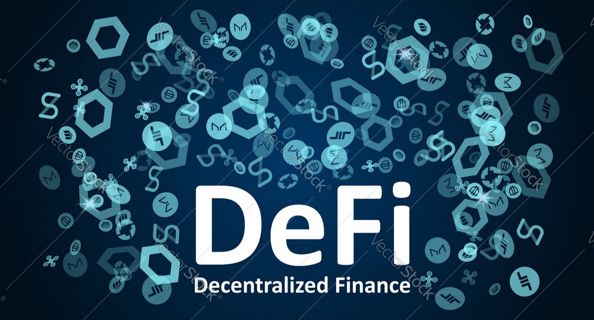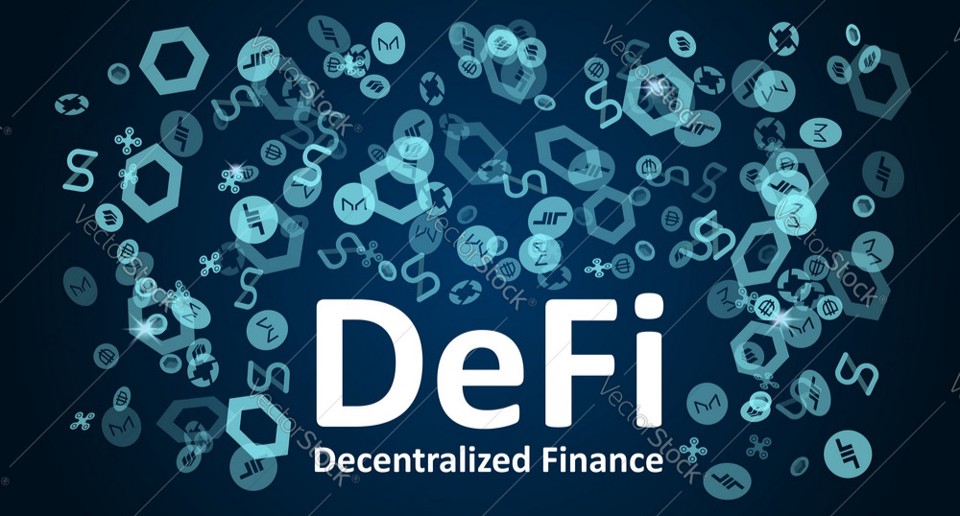
 Looking back to history, the world started with trading goods in exchange for services (barter system). Rises a lot of problems and thus opens room for the development of currencies. Currencies were invented to make exchanging and trading easier, At the same time requiring someone to control their use and production of it. That was how some major Authorities such as central banks and different financial institutions (banks) were established to regulate the supply of currencies that are available in circulation.
Looking back to history, the world started with trading goods in exchange for services (barter system). Rises a lot of problems and thus opens room for the development of currencies. Currencies were invented to make exchanging and trading easier, At the same time requiring someone to control their use and production of it. That was how some major Authorities such as central banks and different financial institutions (banks) were established to regulate the supply of currencies that are available in circulation.
With the rapid increase in the importance of currencies, the power financial authorities possess also increased rapidly. Central banks can print money whenever they decide to do so, also People have to trust them in making financial decisions. These authorities, therefore, gain control of all that money in exchange for small interest rates. That is why DeFi is becoming a more and more popular topic.
Defi or decentralized finance is one of the trending and most important topics in cryptocurrency. Defi as a sector under crypto is developing at a rapid pace but is still in its early stage of development compared to traditional finance (TradFi). So you need proper knowledge about it before you deep dive into the space which is our aim in this series.
So before we start let's define defi,
What is defi?
Defi is a combination of two words 'Decentralised' and 'finance'. Decentralization means to remove or reduce the authority of a governing body by distributing that authority among several bodies, And finance means anything relating to money and assets. Having this in mind, Decentralised finance is a sector, protocol, and project that helps to remove all intermediaries or third parties such as brokers, banks, exchanges e.t.c in our financial services but uses blockchain technology to create a new global financial ecosystem.
The main goal of defi is to create an entirely new financial system, completely independent of the traditional financial (TradFi) economy. Now, for the first time, two or more parties anywhere in the world can transact and do business peer-to-peer easily. Trust is established, not by powerful intermediaries, but rather by software (smart contract). Instead of transacting through banks and exchanges, people transact directly with one another, with blockchain-based “smart contracts” doing the work of the middle man, making markets safe, and ensuring that the entire process is fair and trustworthy.
Origin of decentralized finance
The origin can be traced back to 2013 when Ethereum launched. Ether as a Cryptocurrency has mainly for use cases which are;
to be a digital money
to be used for global payments
to have blockchain applications run on top of its code.
The use case above is that making ether has a lot of utility. There is currently an entire digital economy running on top of Ethereum, one of which is the DeFi ecosystem. The first project to explore the defi ecosystem was MakerDAO, which was created in 2015 on top of the Ethereum blockchain. MakerDAO allows any user to lock ether, or ETH, via smart contracts and generate dai (a crypto stable coin pegged to the U.S. dollar). Dai is often used in the MakerDAO savings platform called Oasis, effectively creating a decentralized bank. Through the power of stablecoins and smart contracts, Oasis created a lending and borrowing platform for its users.
Today, nearly 7 years after the launch, the Ethereum blockchain hosts an over $42 billion ecosystem of decentralized applications that provide wide-ranging services.
How to Invest in DeFi – Beginner’s Guide
If you are looking for one way to earn passive income with crypto, defi protocols are one way to explore. The evolution of DeFi has made financial services alongside the process for earnings favorable ROI on digital assets. Perhaps, the most interesting aspect for regular DeFi participants is how they effortlessly make a profit simply by leveraging existing crypto capital. By putting assets you own into DeFi protocols, you can earn profit without risking it through trading or other economic activities. While there are still risks to factor in when interacting with DeFi protocols, on the whole, it is a fairly safe means of generating profit.
However, you should know that DeFi does not offer any ‘get-rich-quick’ schemes for growing the value of your assets. You can find various decentralized protocols and smart contract applications in the DeFi landscape, offering exclusive ways for passive income. The following discussion aims to introduce readers to common methods for earning passive income in DeFi, which you can employ for deriving additional value from your crypto assets.
Providing liquidity for a Dex
Another proven approach for earning passive income with the help of DeFi is to provide liquidity for Decentralized exchanges such as Uniswap and SushiSwap allowing swaps between token pairs, like ETH and USDT. The thing is to lock your assets in a liquidity pool and get LP tokens (liquidity pool tokens) in return. In doing this, you will earn a 0.3% fee from all swaps, proportionally to your pool share. The more the trades conducted via the pool, the more you’ll earn. Although the process seems simple and tempting, you can lose money through a process known as impermanent loss (IL).
Impermanent loss; Becoming a liquidity provider does not always bring in profits. We are aware of the instability and fluctuations in the price of coins, so you may lose the money invested, which is called impermanent loss. You can choose coins with excellent stability and highly liquid pools to avoid this.
Defi yield Farming
This works Hand with liquidity providing that if you want to earn passive income with DeFi through yield farming, you have to become a liquidity provider first. The liquidity token generated by locking tokens into liquidity pools can also earn by locking them into yield farms to generate yields. Yield Farming is DeFi protocol and earns rewards in the same token or different tokens. However, yield farming is exclusive to LP tokens only. You should be pretty careful and choose platforms with a good reputation in this process. Otherwise, there may be a so-called “rug pulling” by programmers who have access to tokens which is a term for token theft.
Invest in DeFi Coin.
A simple and popular way to invest in decentralized finance similar to HODLING of crypto tokens is to buy the best DeFi coins to your wallet. This means that you will be investing in a DeFi project by holding its native digital currency. Like all other crypto assets, the DeFi coins that you buy will be listed on crypto exchanges, wallets like trust wallets, and uniswap. The earlier you get into a project the greater the profit you can maximize in the long run. According to "Coingecko ''; There are now over 540 DeFi tokens that you can buy. Each token and project use case focuses on a particular area of the decentralized finance sector, so you will need to do some research to pick the right coin to buy.
Staking
This is passive and one of the popular ways to earn in the defi sector is by staking your defi coin In a platform that supports crypto staking. It can be related to saving in tradfi. Staking in defi involves locking your token in a smart contract for an extended period and in return, you will earn more of the same token. What is your locked token used for? staked tokens are used on the POS (proof of stake) blockchain to verify transactions. You should know in mind that only tokens that support the Proof-of-Staking consensus protocol can only be staked, Others, like Bitcoin, which has Proof-of-Work (aka crypto mining) for transaction validation, don’t allow crypto staking.
The Proof-of-Stake consensus algorithm implies that users on the platform would place their assets as stakes in the platform. These are controlled by network validators, who are tasked with upholding the blockchain’s consensus rules and ensuring that no one has tried to cheat the system. In return for the trust shown by the users in the network, the platform rewards them with tokens. Since the process is automated and doesn't require manual oversight, After depositing funds into the smart contract. You can leave the Proof-of-Stake mechanism to take care of the rest, while periodically claiming your rewards.
Borrowing and lending
Another way to earn passive DeFi income involves a lender providing a token or coin on the lending platform and a borrower coming to the platform to take a loan. These tokens are then utilized by borrowers, who then pay the interest together with the borrowed token, a portion of which is returned to the lender. The lender earns interest in terms of APY (Annual).
Compound Finance, for example, currently offers an APY of 3.65% for lending Tether. The entire process is controlled by smart contracts, there is no risk of the borrower failing to return the borrowed tokens. Thus, you should always be able to withdraw your staked assets at any time. The presence of smart contracts is to ensure trust and fairness in the process.
In conclusion, Just like the internet-enabled free transfer of information, DeFi aims to enable the transfer of value in an open, transparent, auditable system that doesn't need any centralized 3rd party or gatekeeper — but just the agreement of two parties. In addition, everything in this article looks simple and tempting, when exploring defi protocols and projects you should keep in mind that every way of investment provides new possibilities and also carries specific risks involved in them. Hence investors are advised to carry out extensive research before committing their hard earned money to yield Farming, staking, liquidity pool, or lending. If you have any questions regarding this piece you can contact us
Was this brief article helpful? Have you learned something? If yes, then click on the UPVOTE icon , SHARE, drop a COMMENT and FOLLOW my profile for more interesting contents on finance and cryptocurrency related issues. For further information you can as well reach out to me through my inbox or link attached to my profile. Thank you for reading.
